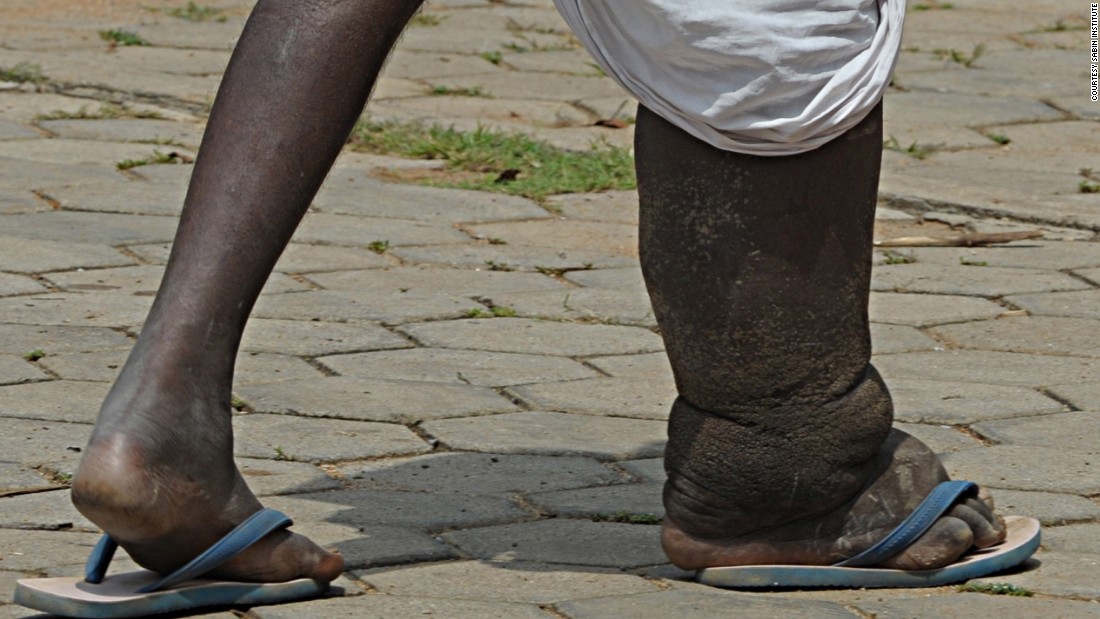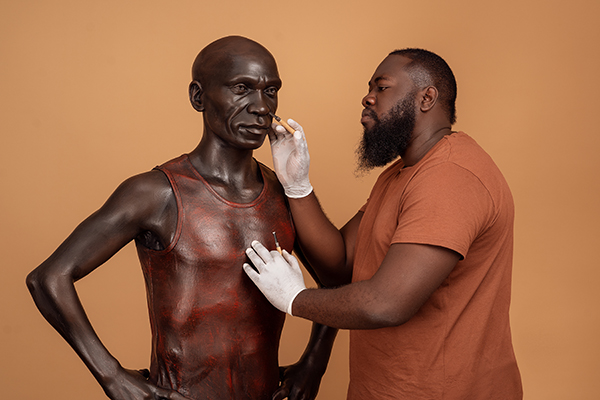
Volcanic soil causing elephantiasis in western Uganda

Scientists have discovered that it is volcanic soil and not parasitic worms causing a type of elephantiasis in Kamwenge District is a district in Western Uganda, reports the New Vision.
The disease which has affected people in western Uganda for over 30 years has been said to be contacted from the volcanic soil by walking bare foot and not by parasitic worms as previously thought, according to a new study published in the American Journal of Tropical Medicine and Hygiene.
Elephantiasis causes swollen limbs with sores and great pain. Medical tests conducted in over 52 people showed no signs of the filarial worms known to cause the disease but were found to have a form of elephantiasis called podoconiosis which is non-infectious and is triggered by long term foot exposure to irritating minerals in volcanic soils.
This type of elephantiasis is usually associated with farming and years of working barefoot in freshly dug up soil according to World Health Organization.
People can suffer from podoconiosis for years before it becomes obvious that they are developing elephantiasis according to Kihembo, a senior field epidemiologist with Ministry of Health and the lead author of the study.
Patients initially experience burning sensations and repeated itching of the skin of the forefoot and sometimes develop secondary infections due to the sores on the skin, compromising their health and productivity.
To prevent infection from the disease one must wear shoes regularly; quickly wash their feet after soil exposure and cover mud floor surfaces inside traditional huts.
Elephantiasis is a largely predominant condition in tropical Africa, since it has been eliminated in North Africa and Europe.






